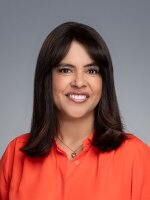Students filled a school board meeting in Tucson, Arizona, shouting a protest.
“When education is under attack, what do we do? Fight back!”
That protest occurred in 2011 and it followed a decision to cancel a Mexican-American studies class. Opponents said the class would create resentment and divisiveness in students. Supporters disagreed. The class was canceled, but the issue has not gone away.
In fact, the push for ethnic studies has become a movement throughout California, and it has arrived in San Diego.
Guillermo Gómez, a Spanish teacher in the San Diego Unified School District for 19 years, said curriculum in the district today offers little diversity and lacks cultural relevancy.
“The curriculum is very narrow, very Euro-centric. It doesn’t offer more ground for students to experience certain types of histories,” Gómez said.
Gómez is part of the Association of Raza Educators San Diego, which has joined the Ethnic Studies Now Coalition of San Diego in making a push for a mandatory ethnic studies course in the San Diego Unified district.
Earlier this year, the school board passed a resolution that formed a committee to find a way to include ethnic studies in the district's curriculum.
In San Diego Unified, 76 percent of the students are nonwhite and up to 50 different languages are spoken.
Diane Andraca, a senior at Lincoln High School who identifies herself as Mexihca and Mescalero Apache, said she would welcome an ethnic studies program because she doesn’t learn much about her own culture or history at school.
“It’s not supposed to be like that,” Andraca said. “You’re supposed to know your background, where you came from, your ancestors.”
School districts in Los Angeles and San Francisco have already committed to providing high school students with an opportunity to take ethnic studies courses.
Those efforts also inspired a bill by Democratic Assemblyman Luis Alejo of Watsonville that would have required the classes to be offered as electives across the state.
"If we are serious about preparing students for jobs of the 21st century in this global economy that we now live in, giving students an opportunity to take an ethnic studies course will make them more well-rounded, give them skills to be more successful and work in a diverse environment. I think this is what it's really all about," Alejo said.
But Gov. Jerry Brown vetoed the measure, saying it was redundant because the state is in the process of establishing new guidelines for social sciences, which would include ethnic studies.
The San Diego school board supported the state bill and called for the district to move forward regardless of the status of statewide legislation.
But ethnic studies has its opponents.
Republican Assemblyman Rocky Chávez of Oceanside voted against Alejo's bill and doesn't see the need for ethnic studies.
“One of the most important things children of color have to deal with is in science and mathematics, and they’re under-performing their counterparts,” said Chávez, vice chairman of the Assembly Education Committee. “So introducing a new class that would take time away from their traditional studies would not help out.”
Chávez also wonders who the classes would leave out.
“How do you prioritize one culture over another? And how does a professor deal with somebody from Ethiopia or South Africa or Ukraine? Are we going to be slanted strictly to children that are from Mexico?” he said.

Roberto D. Hernández, a professor of Chicano Studies at San Diego State, said ethnic studies shouldn’t be seen as something that simply takes time away from math and science.
“We need to recognize that ethnic studies is precisely about changing the world in ways much more fundamental than math and science … at a bare minimum alongside math and science,” Hernández said.
Enrique Eduardo “Kiki” Ochoa, a San Diego Unified economics and government teacher who supports making ethnic studies part of the curriculum, said there should be flexibility when it comes to fashioning a school course.
“You would tweak it to your audience,” Ochoa said. “So if you're in a community that is predominantly African-American, obviously you would tweak it to that audience.”
Ochoa said an ethnic studies course should be modeled after a social justice class he taught at Lincoln High School. Lessons ranged from cultural value to discussions on race, identity, gender, discrimination, oppression and social change.
Many supporters of ethnic studies describe it as a way to prepare students for living in a society that is ethnically diverse.
Larry Thurman, a U.S. history teacher at San Diego Unified, said for him the change is not just about improving test scores and raising grades.
“History. Identity. It’s all connected. And we’re trying to not just create a great student, we want to create a great citizen. We want the person to be a successful member of society, to care about other people,” Thurman said.
A plan for changing the curriculum in San Diego schools to reflect ethnic studies is still being worked out. Thurman said he expects some opposition to whatever is proposed to the school board.
The district hopes to launch an ethnic studies program in a few schools by the fall of 2016, a school official said.







